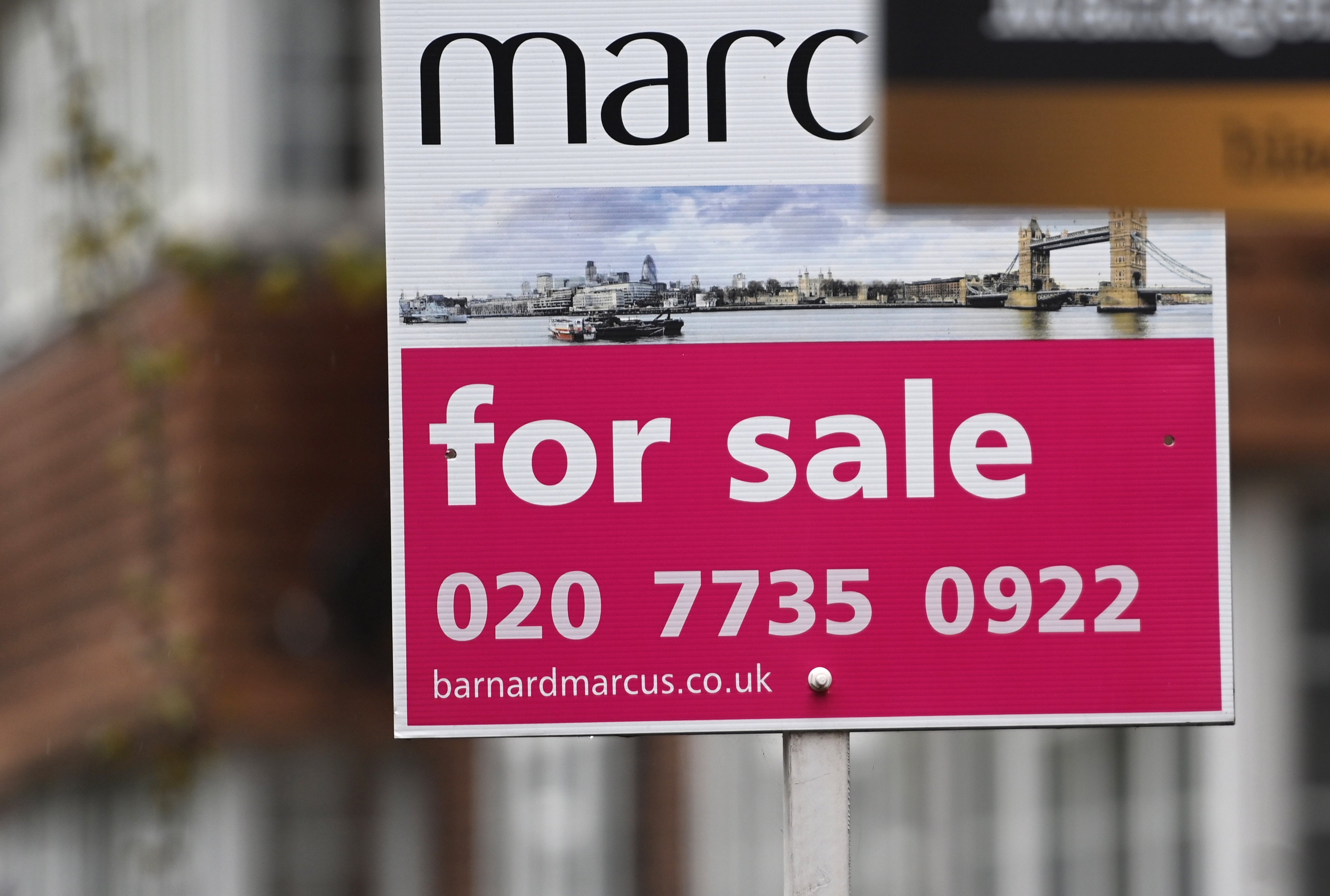The housing boom has clearly ended – but what happens now?
Sales have collapsed and buyers and sellers alike are waiting to see what happens next, writes Hamish McRae


House prices in Britain in October fell for the first time since July last year, and are now up only 7.2 per cent year-on-year on Nationwide’s index. The news sent a chill through the market, for house prices are a lagging indicator of what is actually happening.
The turmoil of the past few weeks has meant not only that mortgage rates have shot up, but many offers have been withdrawn. Sales have collapsed and buyers and sellers alike are waiting to see what happens next. The boom has clearly ended but will now be a crash, a plateau, or what?
There was another piece of news this week that gives us some clues. It was the clutch of stories about the toughness of the budget to come on 17 November. This newspaper’s take was that the NHS would be prioritised but there would be tax rises for millions of households and a cut in spending on other areas.
The connection? Well, there were two reasons for trying to get this story out into the public domain. One was the standard one of news management. If you are going to do something that clobbers peoples’ budgets, you leak the bad news well ahead of the event, so that when it happens you can row back a bit and present something that is less serious than people have been led to expect.
Result: economic confidence is not clobbered as hard as it otherwise might be. One of the indirect effects of that would, at the margin, be to support the housing market.
The other has a more direct impact, one on interest rates. The reversal of the Truss/Kwarteng budget plans has already helped cut long-term interest rates. The yield on 10-year gilts had risen to over 4.5 per cent last month. Now it’s trading around 3.5 per cent.
This Thursday, the Bank of England increased short-term rates by 0.75 percentage points, following a warning last month by Andrew Bailey, the governor, that “a stronger response” might be needed to curb inflation. This is part of a worldwide trend, with the European Central Bank increasing rates by 0.75 percentage points last week and the US Federal Reserve has done so by a similar amount as well.
So far, so bad – at least bad if you are a prospective homebuyer. But leaking this story about a tough budget ahead of the bank’s monetary policy committee meeting will give it comfort that it won’t have to compensate for overly-loose fiscal policy by having tougher monetary policies. Indeed, if whatever comes out on 17 November pushes demand down in the economy, that will help take pressure off prices, which in turn means the MPC can get away with smaller increases in interest rates.
This did not deter the MPC from going for the 0.75 per cent rise, but it does cut expectations for the peak in rates next year. The market now reckons the peak will be 4 per cent, not the 5 per cent or more priced into rates a few weeks ago. It also thinks that higher mortgage costs will have some impact on house prices, with falls of between 5 per cent and 10 per cent next year.
That feels a good benchmark set of numbers. Of course these would be average declines, and some regions and types of property could fall further. But to put this into perspective, such a decline would follow several years of double-digit, or near double-digit increases.
To keep up to speed with all the latest opinions and comment sign up to our free weekly Voices Dispatches newsletter by clicking here
So anyone who bought a year or more ago should still be ahead, even if prices do fall by up to 10 per cent. During the last house price crash, in 2008/09, prices fell by 20 per cent over 16 months. So we are not, if the EY ITEM Club is right, in anything like as serious a situation as then.
There is another factor at work. Between 30 per cent and 40 per cent of all purchases are for cash and one effect of the pandemic has been for many people to build up large cash balances, money they would normally have spent but did not do so.
These so-called excess savings are not evenly spread and some will have to be spent on extra fuel costs through the winter. But overall, there is still a lot of cash around. The ONS estimated there was £140bn of this forced saving at the end of last year. This store of cash did not exist after the 2008/9 financial shock.
All this points to a smaller decline than in 2008/9. Maybe a shorter one? Well, perhaps. If interest rates start falling in the middle of next year that could pave the way for a revival. Meanwhile for cash purchasers this will be an unusually good time to pop in an offer for that home of their dreams.






Join our commenting forum
Join thought-provoking conversations, follow other Independent readers and see their replies
Comments